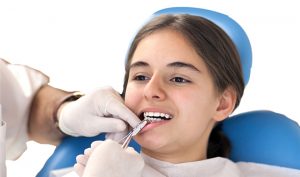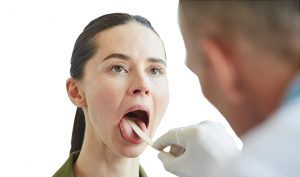Halitosis is the medical term for unpleasant breath. Everybody gets bad breath from time to time, especially after eating foods like onions, garlic, or other pungent foods. Chronic halitosis (persistent bad breath) may show that you have an issue with your dental health or a condition that is affecting another part of your body.
Halitosis is a sign of many different medical conditions. In other words, it mimics a warning signal from the body. The first step in treating halitosis is determining its etiology.
Halitosis is a widespread and common condition that affects 1 in 4 people worldwide. Halitosis affects roughly 31.8% of people, according to a research study that compiled the findings of 13 medical journal studies.
Symptoms of Halitosis
In addition to a bad odor, you may also get a bad taste in your mouth. Even after brushing and using mouthwash, the taste won’t go away if it’s caused by an underlying problem rather than food particles stuck in your teeth.

Causes of Halitosis
- Inadequate dental care
- Strong foods and beverages
- Smoking
- Dry mouth
- Periodontal disease
- Throat, mouth, or sinus issues
- Diseases (renal failure or illness, liver illness or dysfunction, diabetes, gastroesophageal reflux disease (GERD)

How is bad breath identified?
Your dentist will examine your breath and inquire about the problem. They might suggest that you schedule a visit before brushing your teeth in the morning.
Expect to be questioned about what you eat, how often you brush and floss, and any allergies or ailments you may have. Tell your doctor on medication(s) that you use, how often you snore, and when the issue started.
Your dentist will advise you to consult your family doctor or general physician to rule out an underlying disease or condition if the odor doesn’t appear to be coming from your mouth or teeth.
5. Try nutritional supplements to aid with menstrual symptoms
Vitamin D can help with absorption of calcium and reduction in inflammation. Other supplements, including as omega-3 fatty acids, vitamin E and magnesium, can help inflammation reduction and may even make periods less painful. For best results take supplements every day, not just during your period, Also, because certain supplements interact with medications, consult your doctor before taking anything new.
6. Apply heat to relieve cramping
A little heat can help relax your muscles, improve blood flow and relieve tension. Use a heating pad while you sit or take a hot shower.

What options are there for treating bad breath?
If plaque buildup is the root of your foul breath, a dental cleaning may be the answer. A thorough dental cleaning could be necessary if you have periodontal disease.
Treating underlying medical issues like a sinus infection or kidney disease can also help with breath odor.
If dry mouth is the root of your odor issue, your dentist may advise using an artificial saliva product and drinking plenty of water.
How can I avoid having bad breath?
Brushing your teeth twice a day is recommended (but be careful not to overdo it).
It’s advised to floss every day, making careful to get between all of your teeth. For everyday bacterial eradication, use antimicrobial mouthwash. A tongue scraper or toothbrush can also be used to eliminate bacteria from your tongue.
Frequently, staying hydrated can help to lessen or even avoid foul breath. Drink plenty of water to keep your mouth wet and flush away food debris. Giving up smoking can help keep your mouth fresh, odor-free, and moisturized.

The following actions can also help prevent foul breath:
- Clean your retainers, mouth guards, and dentures everyday.
- Replace your worn-out toothbrush with a new one every three months.
- Make an appointment for a dental cleaning and checkup every six months.
